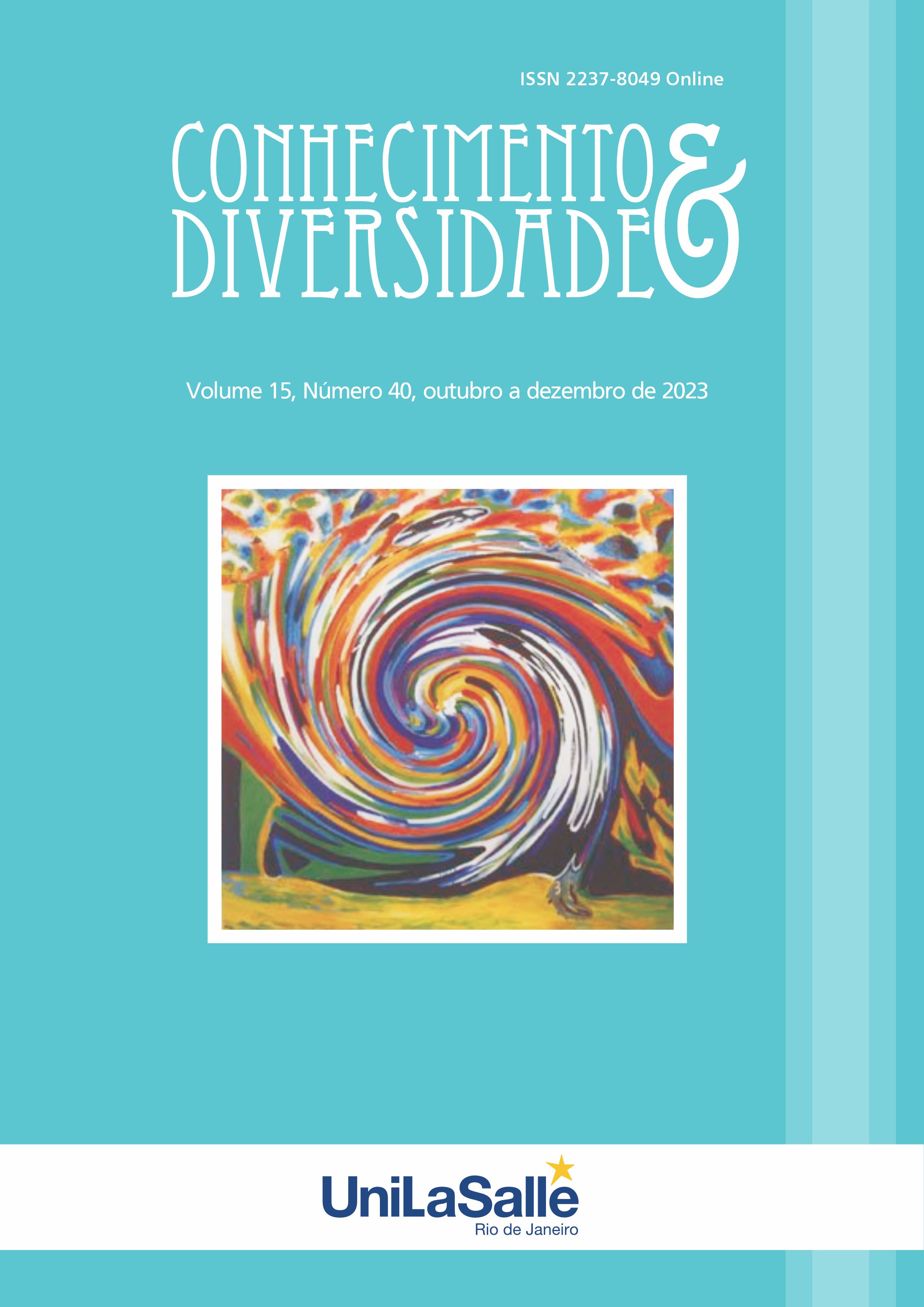DIGITIZATION AS A DIGITAL HUB OF INTERACTION IN THE EDUCATIONAL ENVIRONMENT OF A EDUCATION INSTITUTION
DOI:
https://doi.org/10.18316/rcd.v15i40.11250Palabras clave:
Socio-Economic Phenomenon, Specialist Training, Educational ProcessResumen
The article analyzes generally accepted and innovative approaches to managing the quality of specialist training in (vocational and technical) education institutions, reveals the essence of the concept of competitiveness as a socio-economic phenomenon. The effectiveness of the structural-functional quality management model of specialist training has been proven, the issue of involving business and stakeholder councils in quality management, innovative views in ensuring the quality of professional training by bringing the content of state standards into account (vocational and technical) education, close to the requirements of employers; systematic work on increasing the prestige of working professions (introduction of innovative technologies of professional orientation, professional development and career planning); development of elements of dual and mixed education systems; effective management and control of the educational and production process. He proposed such effective areas as mentoring, creation of educational clusters, application of hub technologies, digitization). Mechanisms of quality management of vocational education and training in countries are substantiated, quality assessment system is analyzed.
Citas
ALAMO, J., QUEVEDO, E., COLL, A.S., ORTEGA, S., FABELO, H., CALLICO, G.M., & ZAPATERA, A. Sustainable Educational Robotics. Contingency Plan during Lockdown in Primary School. Sustainability, 13(15), 8388, 2021. https://doi.org/10.3390/su13158388
BERS, M.U., GONZÁLEZ-GONZÁLEZ, С., & ARMAS-TORRES, M.B.. Coding as a playground: Promoting positive learning experiences in childhood classrooms. Computers & Education, 138, 130-145, 2019. https://doi.org/10.1016/j.compedu.2019.04.013
BERS, M.U., FLANNERY, L., KAZAKOFF, E.R., & SULLIVAN, А. Computational thinking and tinkering: Exploration of an early childhood robotics curriculum. Computers & Education, 72, 145-157, 2014. https://doi.org/10.1016/j.compedu.2013.10.020
CABALLERO-GONZÁLEZ, Y.A., & GARCÍA-VALCÁRCEL, A. Learning with robotics in Primary Education? A means of stimulating computational thinking. Education in the Knowledge Society (EKS), 21, 15, 2020. https://doi.org/10.14201/eks.22957
GONZÁLEZ-GONZÁLEZ, C.S. State of the art in teaching computational thinking and programming in children. Education in the Knowledge Society (EKS), 20, 15, 2019. https://doi.org/10.14201/eks2019_20_a17
Hour of Code. 2023. Official site. Accessed on: 10.04.2023 Retrieved from https://hourofcode.com/ua/en
JAMAL, N.N., ABANG JAWAWI, D.N., HASSAN, R., & MAMAT, R. Conceptual Model of Learning Computational Thinking Through Educational Robotic. International Journal of Emerging Technologies in Learning (iJET), 16(15), 91-106, 2021. https://doi.org/10.3991/ijet.v16i15.24257
KANBUL, S., & UZUNBOYLU, H. Importance of Coding Education and Robotic Applications For Achieving 21st-Century Skills in North Cyprus. International Journal of Emerging Technologies in Learning (iJET), 12(01), 130-140, 2017. https://doi.org/10.3991/ijet.v12i01.6097
KIM, C.M., KIM, D., YUAN, Y., HILL, R.B., DOSHI, P., & THAI, C.N. Robotics to promote elementary education pre-service teachers' STEM engagement, learning, and teaching. Computers & Education, 91, pp. 14-31, 2015. https://doi.org/10.1016/j.compedu.2015.08.005
SÁEZ-LÓPEZ, J.M., SEVILLANO-GARCÍA, M.L., & VAZQUEZ-CANO, E. The effect of programming on primary school students’ mathematical and scientific understanding: educational use of mBot. Education Tech Research, 67, 1405-1425, 2019. https://doi.org/10.1007/s11423-019-09648-5 10, 2023
TURAN, S., & AYDOĞDU, F. Effect of coding and robotic education on pre-school children’s skills of scientific process. Education and Information Technologies, 25, 4353–4363, 2020. https://doi.org/10.1007/s10639-020-10178-4
VALSAMIDIS, S., FLOROU, G., ANASTASIADOU, S., & MANDILAS, A. Educational Robotics as a Teaching Tool of Information Technology in the Primary Education, EDULEARN21 Proceedings, pp. 9806-9816, 2021. Available: DOI: 10.21125/edulearn.2021.1984 . Accessed on: April 10, 2023.
Descargas
Publicado
Número
Sección
Licencia
Derechos de autor 2023 Oksana Kuznietsova, Оlga Vnukova, Olena Udalova , Nadiya Slyusar, Olena Honcharenko

Esta obra está bajo una licencia internacional Creative Commons Atribución 4.0.
Tal como recomienda el Public Knowledge Project, RCD adopta para sus artículos una licencia CREATIVE COMMONS: Attribution CC BY 4.0
Esta licencia permite que otros distribuyan, remezclen, adapten y desarrollen su obra, incluso con fines comerciales, siempre que le atribuyan a usted el mérito de la creación original.
Esta es la licencia más adecuada que se ofrece.
Recomendado para la máxima difusión y utilización de los materiales bajo licencia.



